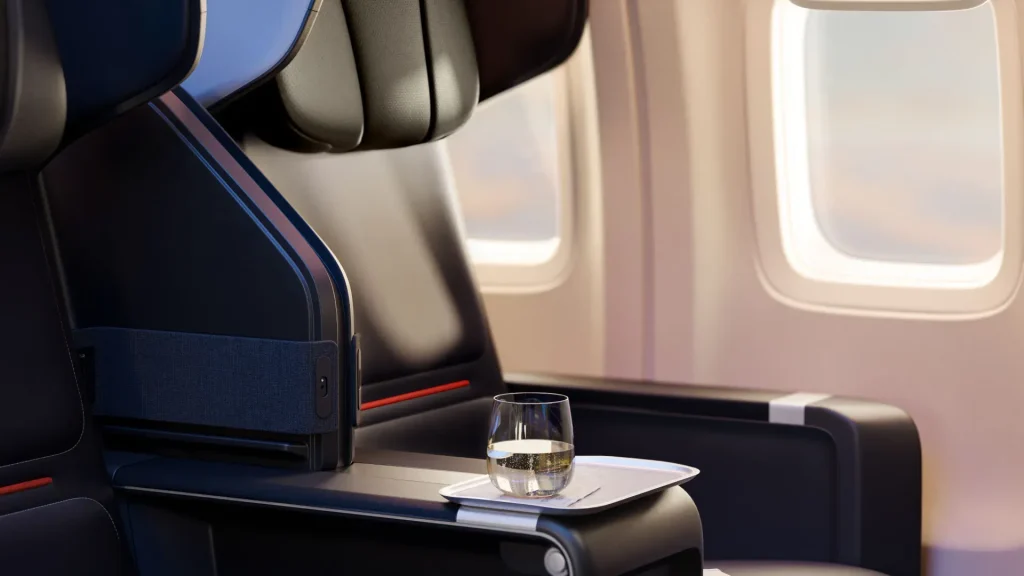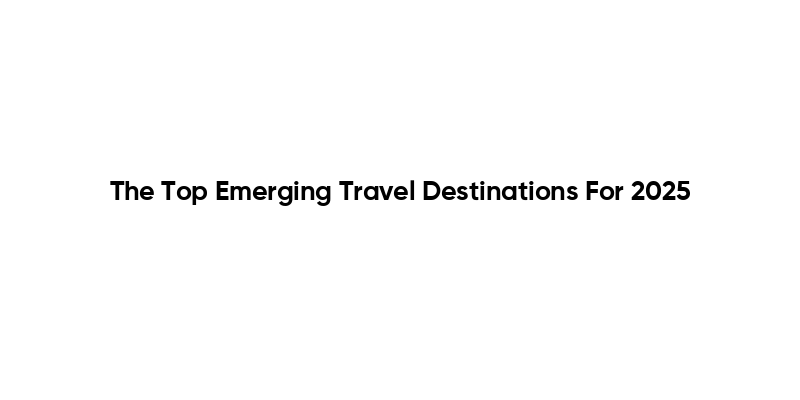Delta premium cabin segmentation is an exciting initiative aimed at enhancing the travel experience for those flying in Delta Air Lines’ high-end cabins. With airlines increasingly focusing on the differentiation of airline cabin segmentation, Delta is reimagining how its premium services are structured, much like it has already done with the economy class. This change could lead to innovative Delta business class upgrades, allowing passengers to choose from a variety of airline seating options tailored to their needs and preferences. As consumer expectations evolve, Delta is keen to implement these seating changes to ensure that they not only meet but exceed passenger demands. By providing enhanced choices and a more personalized service, Delta aims to solidify its position in the competitive airline industry.
In recent years, Delta Air Lines has begun to outline a transformative approach towards enhancing its upper-tier travel options. This revision of high-end travel offerings, known as premium cabin segmentation, is designed to cater to the diverse clientele looking for a refined flying experience. As airlines venture into improving their premium services, the focus is on creating unique seating arrangements and exclusive perks within business class flights. This renewed interest in optimizing airline seating configurations will likely reflect a broader trend in the industry aimed at raising passenger satisfaction and loyalty. Ultimately, by innovating premium services, Delta is setting a benchmark for excellence in airline accommodations.
Understanding Delta Premium Cabin Segmentation
Delta Air Lines is making strides in enhancing its premium service by focusing on segmented cabin options. This approach mirrors strategies that have been successful in the economy class, where airlines have refined their seating decisions to cater to diverse passenger preferences. By dissecting its premium service offerings, Delta aims to provide a more tailored experience, potentially introducing variations in seat size, onboard amenities, and pricing. Notably, the premium cabin segmentation could allow travelers to choose from different products according to their specific demands, similar to how economy classes now offer basic and extra legroom options.
The need for segmentation in premium cabins comes at a time when the airline industry is witnessing a surge in demand for business-class seating. Delta’s President, Glen Hauenstein, emphasized the importance of focusing on these high-margin customers to ensure continued profitability. With the airline’s revenue from premium seats growing, it is crucial for Delta to consider how it can better address customer expectations through refined airline cabin segmentation. This could include rethinking the entire layout of their premium cabins to enhance comfort and provide more flexible seating options.
The Rising Demand for Delta Business Class Upgrades
As leisure and business travel continue to rebound, Delta has recognized the varying needs of travelers seeking exceptional comfort in the sky. With the increasing demand for Delta business class upgrades, the airline is motivated to introduce ticketing options that reflect customer desires for both comfort and service. By enhancing its premium offerings, Delta aims to create tiered choices that cater to discerning travelers, allowing them to customize their flying experience according to personal preferences and budgets. The trend indicates that travelers are willing to invest more for better services and relaxed environments.
Additionally, the conversation around Delta business class upgrades has evolved with increased consumer awareness concerning the distinct advantages of premium seating. According to travel consultants, customers appreciate added value, such as access to lounges and superior on-board amenities. Delta is committed to maintaining a competitive edge in the market by offering upgrades that provide tangible benefits, making their premium products more compelling to consumers. This proactive approach not only meets expectation but can also entice new customers drawn by the allure of enhanced travel experiences.
Exploring Airline Seating Options: Delta’s Innovative Approach
Airlines have continuously innovated their seating arrangements to optimize passenger satisfaction, and Delta is no exception. The airline is not only exploring changes in strategic seating layouts in its premium cabins but is also gathering feedback through customer surveys to evaluate preferences. Such steps are crucial as they inform the company’s decisions about potential enhancements for their premium offerings. Delta’s willingness to adapt suggests a commitment to evolving in-line with consumer dynamics, standing out against competitors who may be slower to implement changes in airline seating options.
Moreover, as many airlines upgrade their premium offerings, Delta is exploring moving beyond traditional configurations to enrich passenger experience. This could lead to the introduction of newly designed seats with larger dimensions and additional amenities, unlike older models which may no longer meet modern expectations. Airline seating options are pivotal for attracting upscale consumers who seek comfort, particularly on long haul flights. Delta’s forward-thinking strategies in terms of seating design and functionality demonstrate their dedication to providing elevated experiences in their premium cabins.
Delta’s Approach to Airline Cabin Segmentation: Future Outlook
The prospect of airline cabin segmentation is a strategic advantage for Delta Air Lines. By tailoring cabin offerings to distinct passenger profiles, Delta is stepping into a competitive arena where customer expectations continue to rise. As other airlines develop larger business class sections with enhanced amenities, Delta is set to follow suit by conceiving how they can diversify their premium segments while maintaining a coherent branding strategy. The segmentation initiative aims to attract various consumer groups, from budget-conscious business travelers to luxury-seeking passengers.
Delta’s focus on refining its premium product strategy represents a broader industry shift towards personalized travel experiences. As airline executives explore these segmentation strategies, aligning product offerings with customer desires will be key. Through a combination of market trend analysis and consumer feedback, Delta appears poised to redefine how premium travel can be experienced. As seen in recent advancements by competitors, the success of these endeavors would hinge on how well Delta can innovate and adapt to ensure that their premium segments not only meet but exceed marketing expectations.
Delta Seating Changes: Anticipating Customer Needs
In light of evolving passenger preferences, Delta Air Lines is preparing to navigate significant seating changes within their premium cabins. These changes are expected to address the increasing demand for flexible and comfortable seating configurations that not only enhance passenger experience but also capture new markets. The airline’s commitment to incorporating customer feedback before rolling out these changes highlights a strategy focused on customer perception of value, ensuring that any modifications resonate positively with travelers.
Delta’s response to emerging trends in airline seating reflects a broader understanding of consumer needs. As airlines across the globe upgrade their premium offerings, Delta’s willingness to invest in customer-centric changes points to a robust operational strategy. This foresight in seating changes aims to differentiate Delta’s premium cabins from competitors, particularly as customers increasingly prioritize comfort, space, and additional services. By remaining attuned to industry developments and consumer insights, Delta is reinforcing its reputation as a leading player in premium air travel and positioning itself advantageously for future growth.
Enhancing Customer Experience in Delta Premium Cabins
Delivering exceptional customer experience has become a central focus for Delta Air Lines as it explores the future of its premium cabins. With the rise in prominence of high-end services, the airline is committed to providing enhancements that serve its passengers better. This includes refining the ambiance, service quality, and overall travel experience to create a more enjoyable atmosphere for travelers in their premium sections. Delta understands that a superior customer experience can lead to higher loyalty rates and repeat business.
In addition to physical improvements, customer experience encompasses the entirety of service, from the booking process to post-flight engagement. Delta is actively looking to optimize how they serve passengers, especially in regard to offering personalized services in their premium cabins. By investing in staff training and improving service techniques, Delta is placing itself in a position where passengers feel valued and well cared for. Enhanced services in premium cabins can significantly contribute to customer retention and attract a broader audience looking for high-quality travel.
Competitors Responding: Delta vs. Other Airlines
The competitive landscape in the airline industry is continuously evolving, especially regarding the premium service sector. Delta’s focus on revamping its premium offerings has not gone unnoticed by its competitors, who are also escalating their game to attract high-fare travelers. Airlines such as United and American have been rapidly updating their business-class products, creating more spacious cabin configurations and enhanced amenities to compete with Delta’s offerings. This rivalry sparks innovation and improvements, ultimately benefitting passengers who have access to better services.
The ability to respond swiftly to market changes can dictate the success of an airline’s premium segment. As Delta and its competitors each strategize on cabin upgrades and seating options, the consumer becomes the ultimate beneficiary of enhanced travel experiences. Increased competition fosters an environment where airlines must continually reassess their offerings and ensure that they remain aligned with customer expectations. Delta’s proactive approach in making strategic enhancements will play a critical role in its ability to retain its leadership position in the premium service sector.
The Future of Delta Premium Services: Trends to Watch
As Delta Air Lines moves forward, several trends are likely to shape the future of its premium services. The airline is aware that travelers are increasingly looking for flexibility and value in their travel arrangements. As such, Delta may explore introducing more differentiated ticketing options in premium segments that appeal to passengers who desire exclusivity without exorbitant costs. This could create a more dynamic range of offerings that cater to various consumer segments, positioning Delta to thrive in a competitive environment.
Additionally, technological advancements and feedback loops from customer surveys will play a significant role in shaping Delta’s premium offerings. The incorporation of passenger data into decision-making processes can provide insights into preferences surrounding seating, service amenities, and overall experience. The proactive testing of new options and commitment to customer satisfaction may lead to innovative developments in the airline’s premium cabins. By remaining agile and responsive to these trends, Delta Air Lines is poised to redefine what premium travel looks like and ensure it meets the diverse needs of its clientele.
Frequently Asked Questions
What is Delta Air Lines’ approach to premium cabin segmentation?
Delta Air Lines is exploring ways to implement premium cabin segmentation similar to its economy class segmentation. This involves introducing various seating options and fare types within its high-end cabins, aimed at enhancing customer experience and addressing the diverse needs of travelers.
How is Delta Air Lines improving its premium service through cabin segmentation?
Delta is focused on enhancing its premium service by examining segmentation strategies that have worked in their economy cabins. This includes testing new ticket types and seating configurations that could provide additional comfort and amenities to business class travelers.
What are the latest developments in Delta’s premium cabin offerings?
Delta is currently testing various options for premium cabin segmentation, including larger seats and additional amenities, ensuring that any changes meet customer expectations for value and comfort in business class.
Will Delta offer cheaper upgrades in its business class with the new segmentation?
While details are not confirmed, Delta may explore introducing lower-cost options in its business class segment. However, the focus remains on enhancing overall value rather than simply providing stripped-down fares without additional perks like lounge access.
How are Delta’s revenue trends related to premium cabin service changes?
Delta’s revenue from premium seats rose by 6% in the first half of the year, highlighting the sustained demand for high-end cabin services. This increase reflects the airline’s strategy to capitalize on premium cabin segmentation and improve service offerings.
What competitive strategies is Delta implementing in its premium cabin segmentation?
In response to competitive market trends, Delta is looking to refine its premium cabin offerings, taking cues from other airlines that have successfully upgraded their business class experiences. This includes potential innovations in seating options and customer amenities.
What feedback has Delta received regarding its premium cabin tests?
Delta is actively conducting surveys to gauge customer interest in potential premium cabin changes. This feedback will guide the airline in developing segmentation strategies that align with customer expectations for high-end travel.
What influences Delta’s decision-making in premium cabin segmentation?
Delta’s decision-making in premium cabin segmentation is influenced by customer perceptions of value, competitive benchmarks from other airlines, and the overall demand for enhanced service in premium air travel.
Are there any unique offerings that Delta is considering for its premium cabins?
Yes, Delta is considering various unique offerings for its premium cabins, potentially including larger seats with enhanced features and different fare types that cater to the evolving needs of business class travelers.
What similarities exist between Delta’s economy and premium cabin segmentation efforts?
Both Delta’s economy and premium cabin segmentation efforts focus on introducing diverse fare types and seating options to cater to varying customer preferences. The airline aims to replicate the successful strategies implemented in economy cabins to improve premium service.
| Key Aspect | Details |
|---|---|
| Premium Cabin Segmentation | Delta is exploring ways to segment its premium cabins to cater to diverse customer needs, similar to existing economy segment options. |
| Reason for Change | There is sustained demand for premium cabins, and Delta aims to enhance service and margins in this segment. |
| Current Market Trends | Competitors like American Airlines are also upgrading their business class offerings with more spacious and superior amenities. |
| Testing Customer Preferences | Delta is currently testing segmentation options and asking for customer feedback before any rollout. |
| Revenue Insights | Delta’s revenue from premium seats rose by 6% to $10.6 billion, indicating a strong market for high-end travel. |
| Future Changes | Delta has not confirmed specific changes but is committed to updating their premium offerings as customer expectations evolve. |
Summary
Delta premium cabin segmentation is a strategic initiative aimed at boosting customer satisfaction and service quality in high-end travel. As Delta Airlines seeks to align its premium offerings with customer expectations, the focus on segmentation will likely enhance profitability while meeting diverse traveler needs. This alignment not only positions Delta competitively against rivals like American and United but also reflects an understanding of a shifting market where premium travel demand continues to grow.



